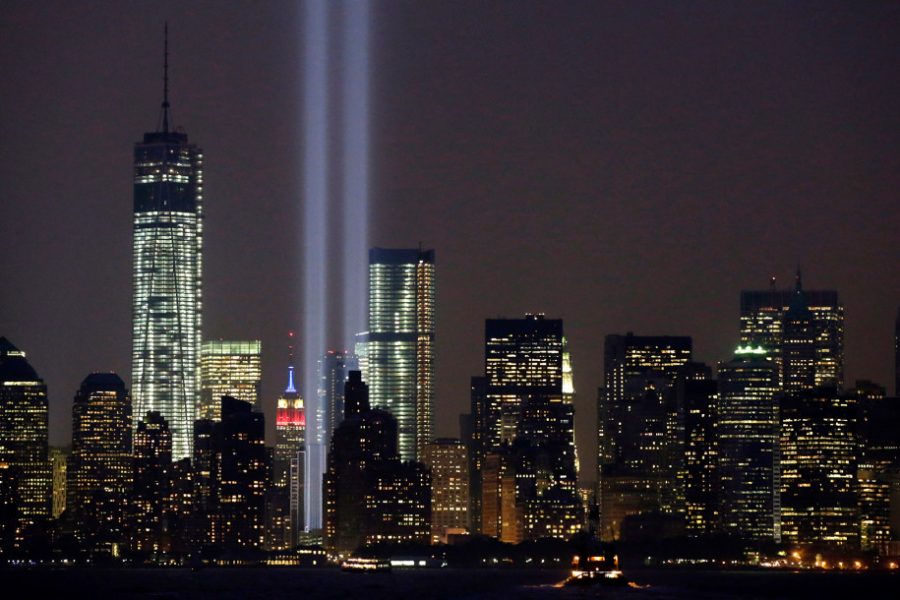A Day to Remember
The continuance of education of 9/11 in a pandemic and the importance of teaching history
Sept. 11, 2001. This was the day that the twin towers of the World Trade Center came crashing down, the Pentagon was hit, and Washington D.C. was targeted. It was the day that engrained horrific images in the minds of millions and left many with tragic losses. Exactly 19 years later, RMHS continues the recognition of the event as a day to never forget, even in a pandemic.
“For my Human Geography students, we go through an interactive timeline of the events on Sept. 11th,” social studies teacher Sean Radcliff said. “There’s pictures, videos, airplane diagrams and even audio from phone calls made aboard the plane.”
Although students are e-learning and the U.S is trying to take control of COVID-19, the importance of continuing the education about what happened on that fateful day remains crucial. In the year since 9/11, the U.S. has implemented newer technology, such as flagging online posts or having set guidelines for potential signs of risk and has enacted constant surveillance of online presence.
“We cannot forget that we have men and women overseas based on Congressional authorizations to respond to 9/11,” Radcliff said. “Many of America’s digital surveillance programs grew significantly after 9/11.”
Because of these terrorist attacks, the U.S. has more strict screening processes in the airport, enhanced security measures in buildings across the country, and a number of additional surveillance increases. Though COVID-19 has limited travel, these same processes are still used regularly to prevent future events like 9/11. These enhancements were made to protect citizens and after these measures were put in place, the patriotism of some Americans left a heavy stereotype on the Muslim religion when it came to traveling.
Despite a reported feeling of patriotism by many Americans in the immediate aftermath of the attacks, some Americans credited the events of this day to the Muslim faith. This controversial opinion manifested to personal attacks on many who appeared to be part of this faith instead of identifying that terrorist extremists attacked the buildings.
“ 9/11 certainly drummed up Islamophobia in the U.S., but more importantly it gave the United States government a new spectre to chase after with its military,” history teacher Roy Olson said.
Though the idea of Islamophobia and thought that any other country other than the U.S. is unsafe is not rooted in 9/11, the events of this day still affect the belief systems and actions of many.
Even though the parallels between COVID 19 and 9/11 are not great, the American response to both events can be seen as similar in that there was an immediate leap to unity and a later division that brought people to crossroads. Because of this repetition of actions, the remembrance of 9/11 and its teaching in (remote) classrooms is especially important today. Even if there is limited time in the class, making space in curriculums for historic events like 9/11 maintains the memory of the tragic day and hopefully helps inform future actions.
“It’s our job to show them the significance of the attacks,” Radcliff said. “It was caused by historical, political, economic and religious factors, and it affected the whole world for decades.”
9/11 should be remembered as the day that changed the way the U.S oversaw national security. The remembrance of 9/11 continues to be imperative despite the current pandemic and maintains an important place in high school curriculums across the country.
“I do think this is a day that should be remembered,” Radcliff said. “The world completely changed on September 11th.”


